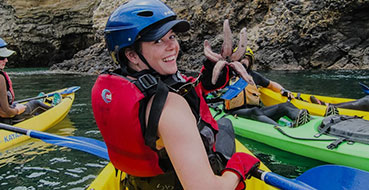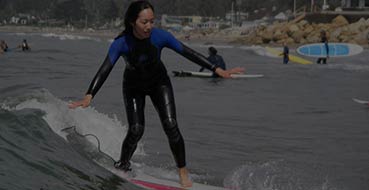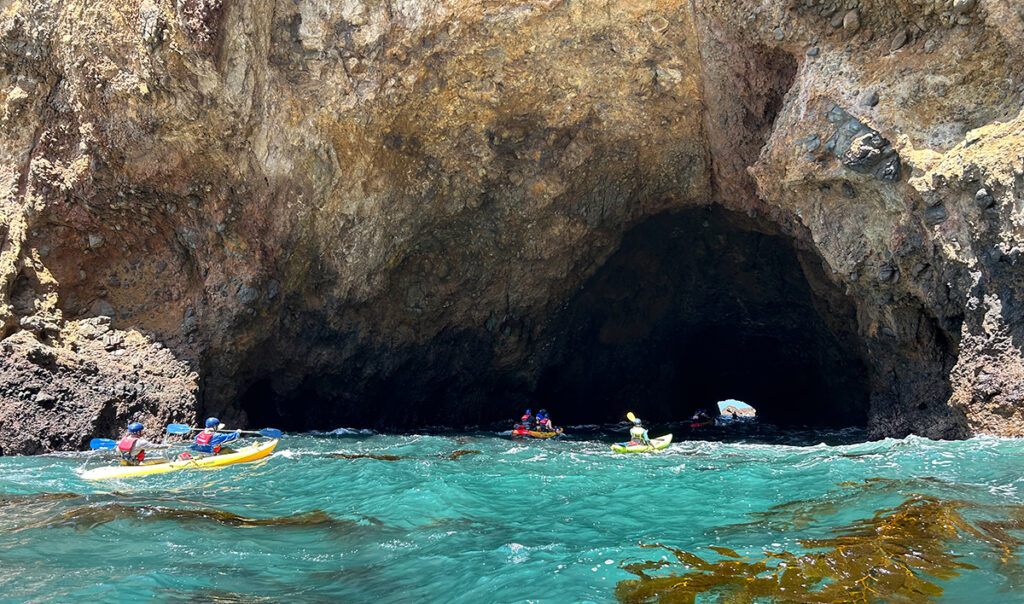
I’ve heard Southern California doesn’t have a change in the seasons. I’ve always scoffed at that notion, especially out at the Channel Islands National Park. Each August, I can feel a gradual shift from late summer into early fall, approaching like a wispy warm easterly wind. It’s arguably the best time of year to experience one of the least visited national parks in North America.
Northwest winds have subsided, water temperatures are warming, and kayaking and snorkeling conditions are sublime. It’s the remnants of summer transitioning into fall. It’s the time of year that typically delivers the best sea conditions at the national park, particularly around Scorpion Anchorage on the southeast end of Santa Cruz Island.
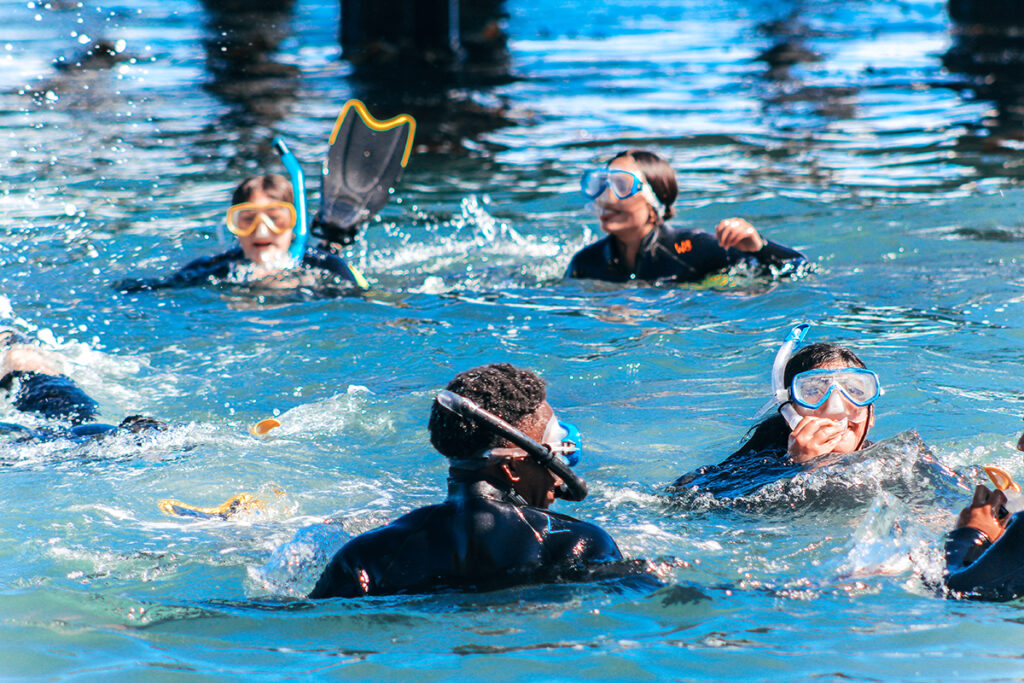
It’s a perfect time to kayak on a guided trip into the throng of sea caves that honeycomb the sheer, volcanic cliffs surrounding the largest, most diversified isle off the California Coast. With such stellar conditions, it gives guests the best opportunity to explore at least 10 toothy grottos under the most optimal weather during the nearly 3-hour Adventure Tour offered by Channel Islands Adventure Company.
Visibility is also phenomenal. Don’t forget that Channel Islands National Park is also one of the most unique parks in North America because half of it is underwater. There is a one-nautical mile boundary extending around each isle. Dense kelp forests are havens, teeming with garibaldi, sheepshead, opaleye, blacksmiths, calico bass, bat rays, halibut, several species of baitfish, and countless invertebrates. And don’t forget those curious spotted harbor seals and California sea lions that keep snorkelers entertained with their balletic pelagic rhythms.
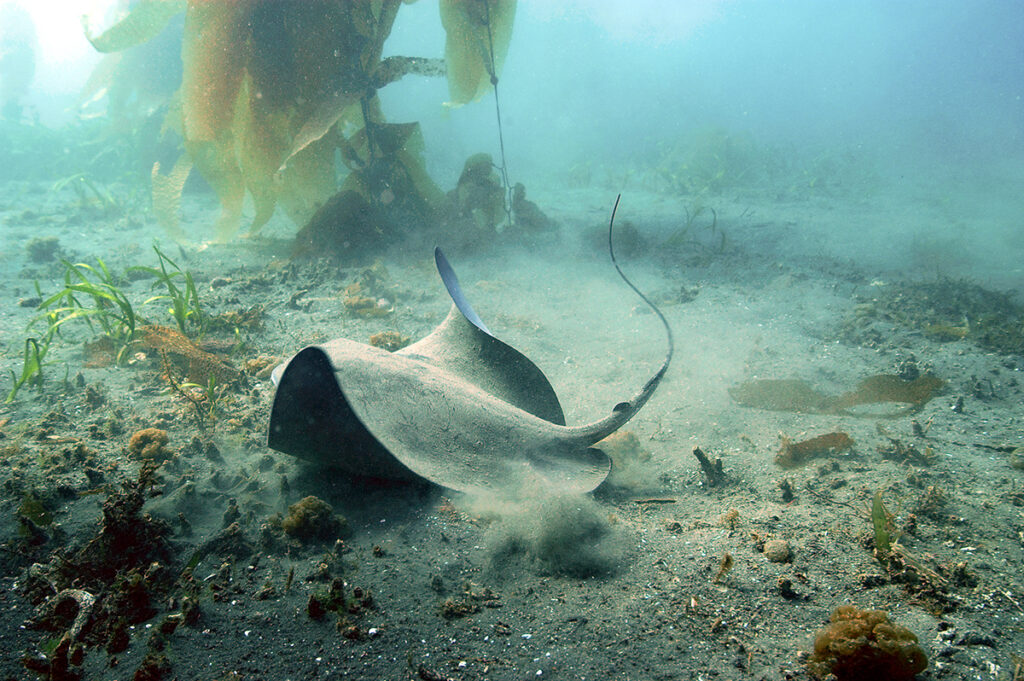
A bat ray glides across on the ocean floor. Image courtesy of Channel Islands National Marine Sanctuary.
Visitors to Scorpion Anchorage have the opportunity to rent snorkel gear at the on-island storefront and venture out on their own. They can also participate in a guided snorkeling tour where guides take guests on kayaks to some of the stunning pocket beaches near Scorpion Rock and Little Scorpion Anchorage. After landing their kayaks, guests then gear up and explore the crystal-clear waters lapping against craggy rock outcroppings and wave-battered cliffs.
This transition in seasons also signifies that fall migration has begun for many wayward bird species, and California’s Channel Islands are the perfect landing spot for weary birds blown off course while flying north to south. Don’t forget your binoculars. Scorpion Anchorage and its adjacent canyon are a haven for a variety of songbirds, seabirds, and shorebirds. Many of the seabird and shorebird species can be observed from a kayak during guided trips in Scorpion Anchorage, or farther afield on a late-season paddling trip to Potato Harbor.
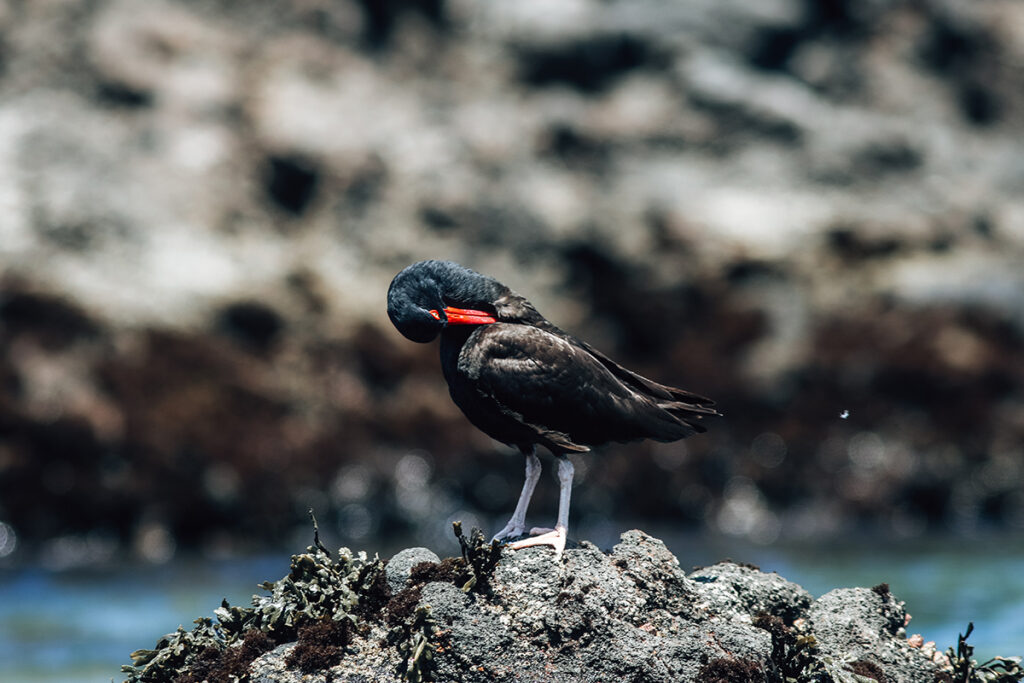
A black oystercatcher perched atop a rock. Photo by Chuck Graham Photography.
Resident species like California brown pelicans, western gulls, and Brandt’s cormorants are seen daily preening from the cliffs and many rocky outcroppings. At lower tides, black oystercatchers enjoy the teeming intertidal zone foraging for crustaceans in the barnacles and mussels. Some of the migratory species seen are striking Pacific loons, tail-wagging wandering tattlers, and surfbirds. Each fall, ospreys and belted kingfishers arrive, and are spotted from the kayaks diving for fish from the towering cliffs.
After paddling, easy hikes into shaded portions of Scorpion Canyon might reveal yellow-rumped, and Townsend warblers, American redstarts, hermit thrushes, chipping sparrows, dark-eyed juncos, and western tanagers are regularly seen. A good place to look for the plethora of songbirds is the old fig trees leftover from the ranching era, which lasted from the 1820s–1990s.
So, whether you are day-tripping on Santa Cruz or camping in Scorpion Canyon, get the most out of your visit paddling, snorkeling, or both with Channel Islands Adventure Company. They will guide you so you can experience all the natural wonders the islands possess.

Blog contributed by:
Chuck Graham
